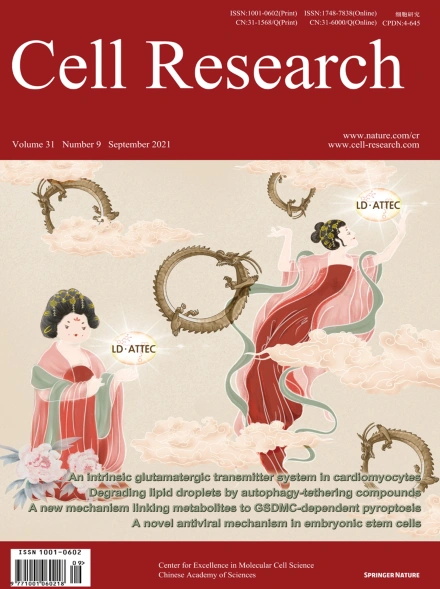
Advanced Search
Submit Manuscript
Advanced Search
Submit Manuscript
Volume 31, No 9, Sep 2021
ISSN: 1001-0602
EISSN: 1748-7838 2018
impact factor 17.848*
(Clarivate Analytics, 2019)
Volume 31 Issue 9, September 2021: 1028-1031
Pharmacological inhibition of SRC-1 phase separation suppresses YAP oncogenic transcription activity
Guangya Zhu1,2 , Jingjing Xie1,2 , Zhenzhen Fu1 , Mingliang Wang3 , Qichen Zhang4 , Hao He5 , Zijun Chen5 , Xin Guo5 , Jidong Zhu1,5,*
1Interdisciplinary Research Center on Biology and Chemistry, Shanghai Institute of Organic Chemistry, Chinese Academy of Sciences, Shanghai 201203, ChinaDear Editor,
Yes-associated protein (YAP) is a transcriptional coactivator that plays an essential role in promoting cell proliferation, development and stem cell fate.1 Aberrant YAP activation is prevalent in diverse types of human solid cancers.2 In mammals, a kinase cascade including MST1/2 and LATS1/2 phosphorylates YAP to prevent its nuclear translocation and subsequent interaction with the TEA domain transcription factors TEAD1–4 in the canonical Hippo pathway. Previous studies have intensively emphasized the upstream signals from the Hippo kinase cascade that regulates YAP;1,3 however, the epigenetic regulatory mechanism of YAP transcriptional activity is far less understood. Given the importance of YAP in cancer progression and limited druggability of YAP/TEAD as transcriptional factors, identification of YAP proximal regulators is of great importance to develop new therapeutic strategies for the treatment of cancer.
https://doi.org/10.1038/s41422-021-00504-x